When Waters Rise, an initiative of the Greater New Orleans Foundation, derives its name from the initial impetus to bring together place-based funders working in communities where flooding due to sea-level rise is a constant concern. Since its initial convening in 2018, the network has experienced increased participation from place-based funders impacted by other types of disaster. The network has grown from 16 participants covering 11 states to 150 participants in 30 states, Puerto Rico, and Canada.
The two-day in-person convening brought stakeholders from across the state and country – including participants from Florida, California, Alabama, and the Appalachia region – to collaboratively consider how to best formalize the network.
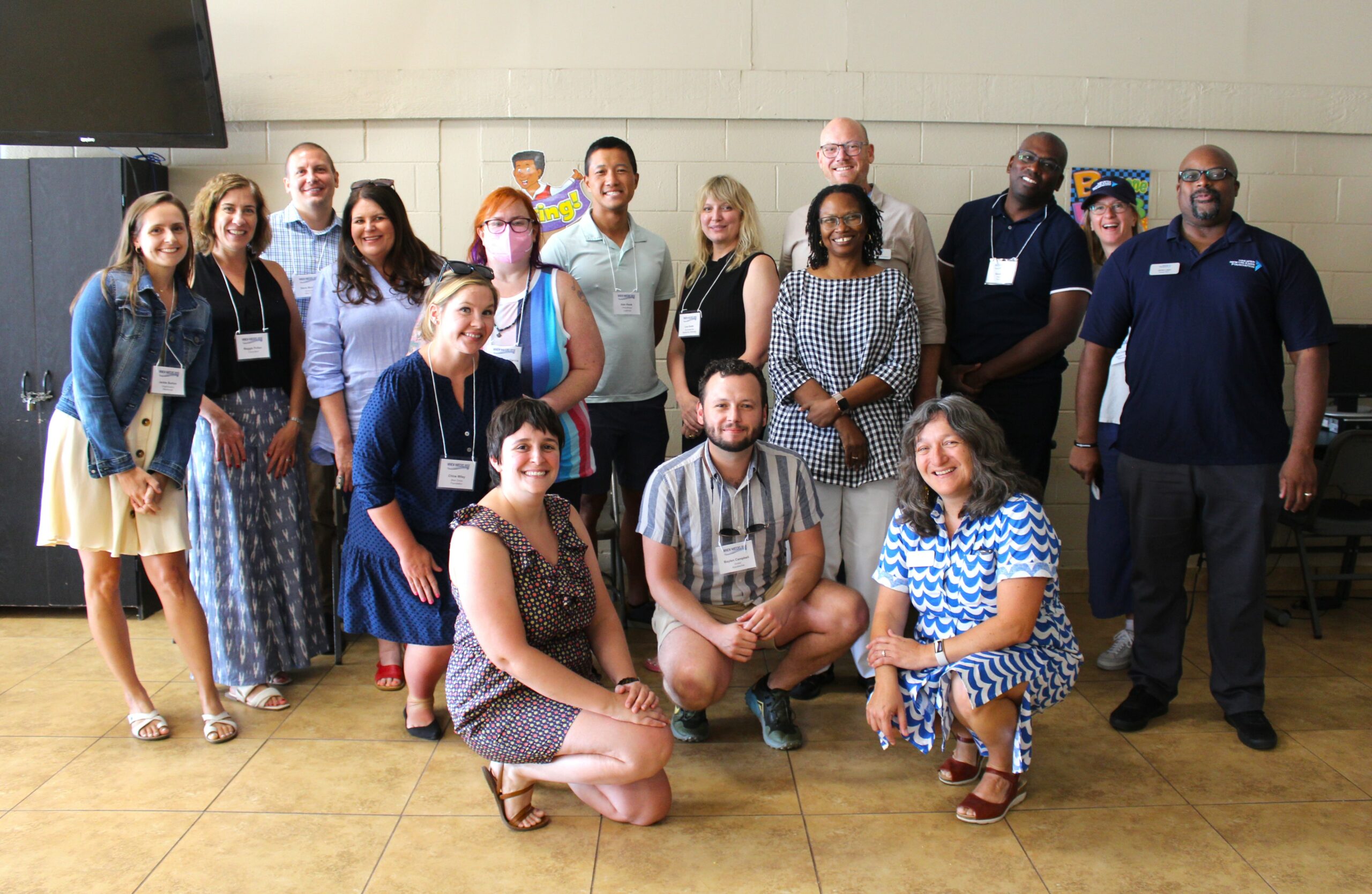
Andy Kopplin, President & CEO of the Greater New Orleans Foundation, spoke on how a large portion of his career was and is focused on building back better following numerous catastrophic disaster events including Hurricanes Katrina and Rita. He shared how those experiences have helped enable the Foundation to enact rapid disaster response grantmaking via trust-based philanthropy and an intentional equity strategy. Kellie Chavez Greene, the Foundation’s Vice President for Programs, provided a refresher on When Waters Rise’s past endeavors, current state, and future opportunities.
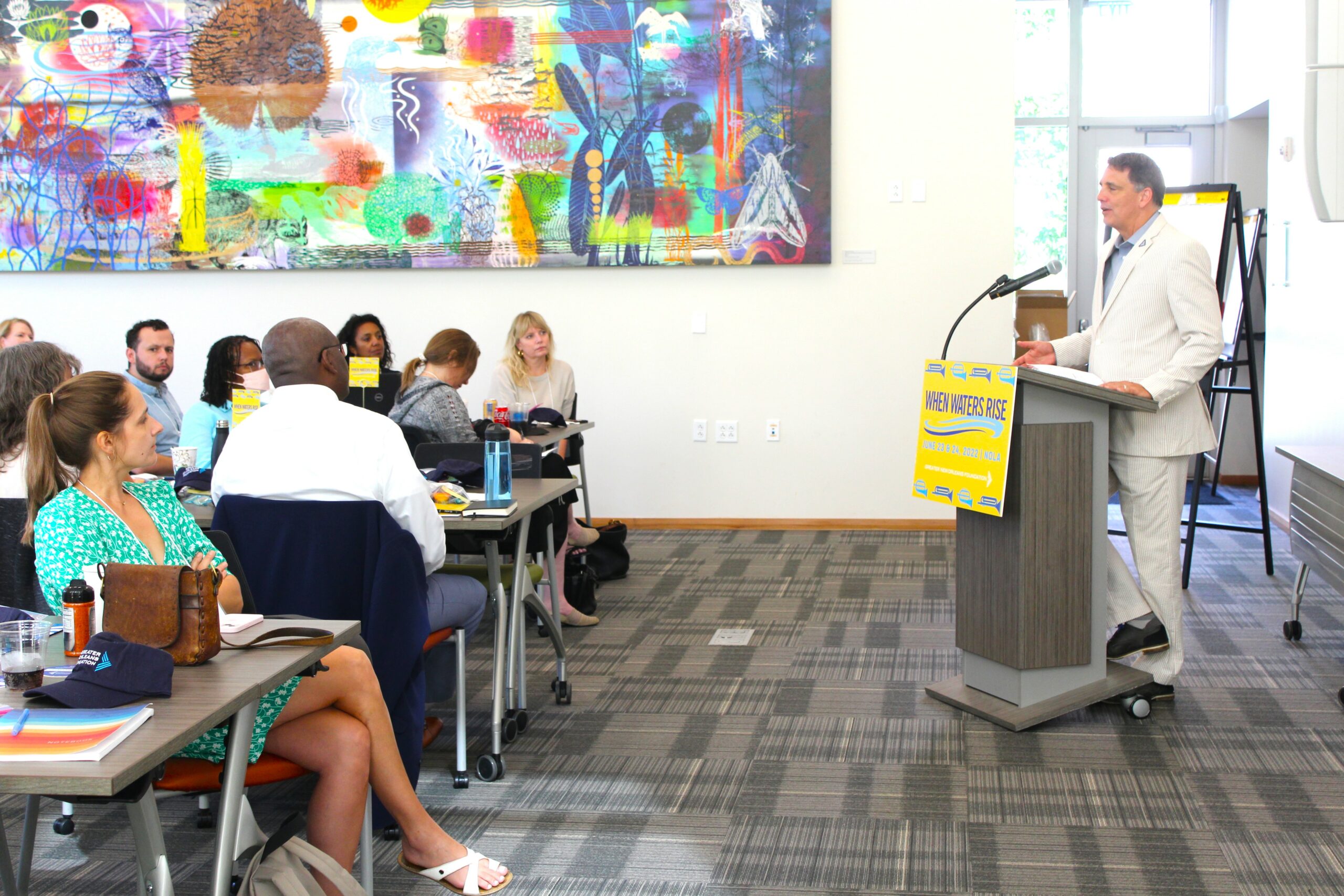
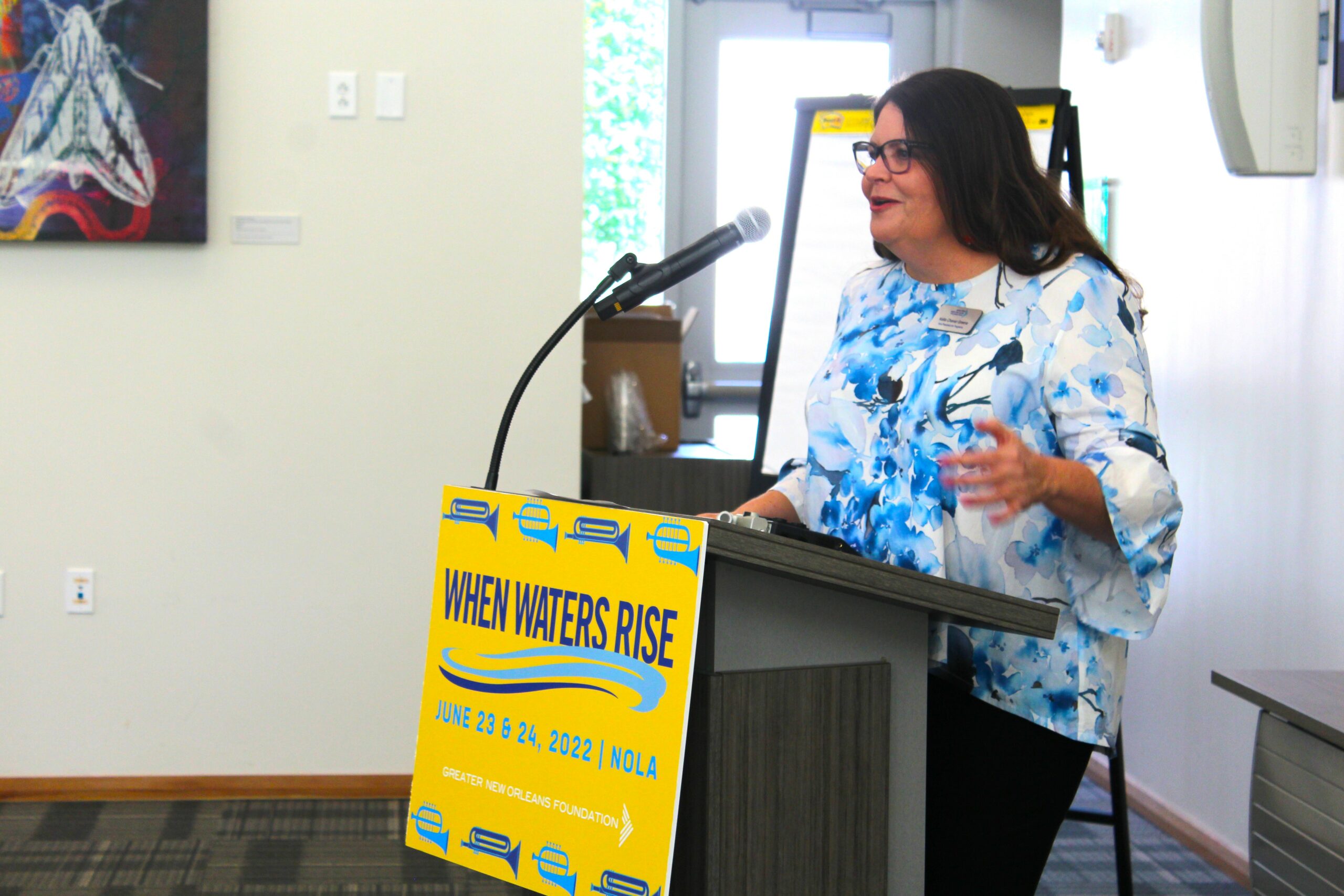
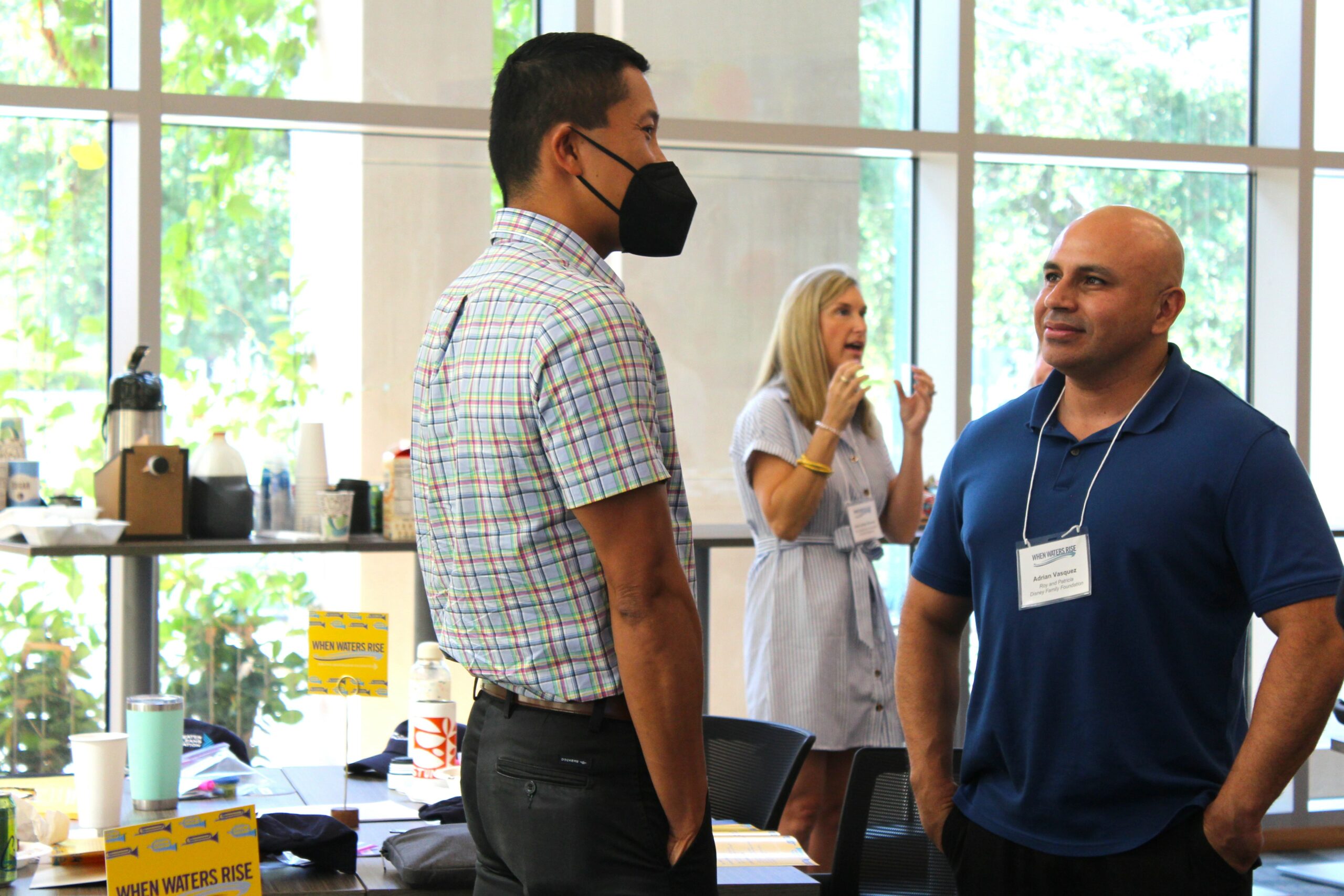
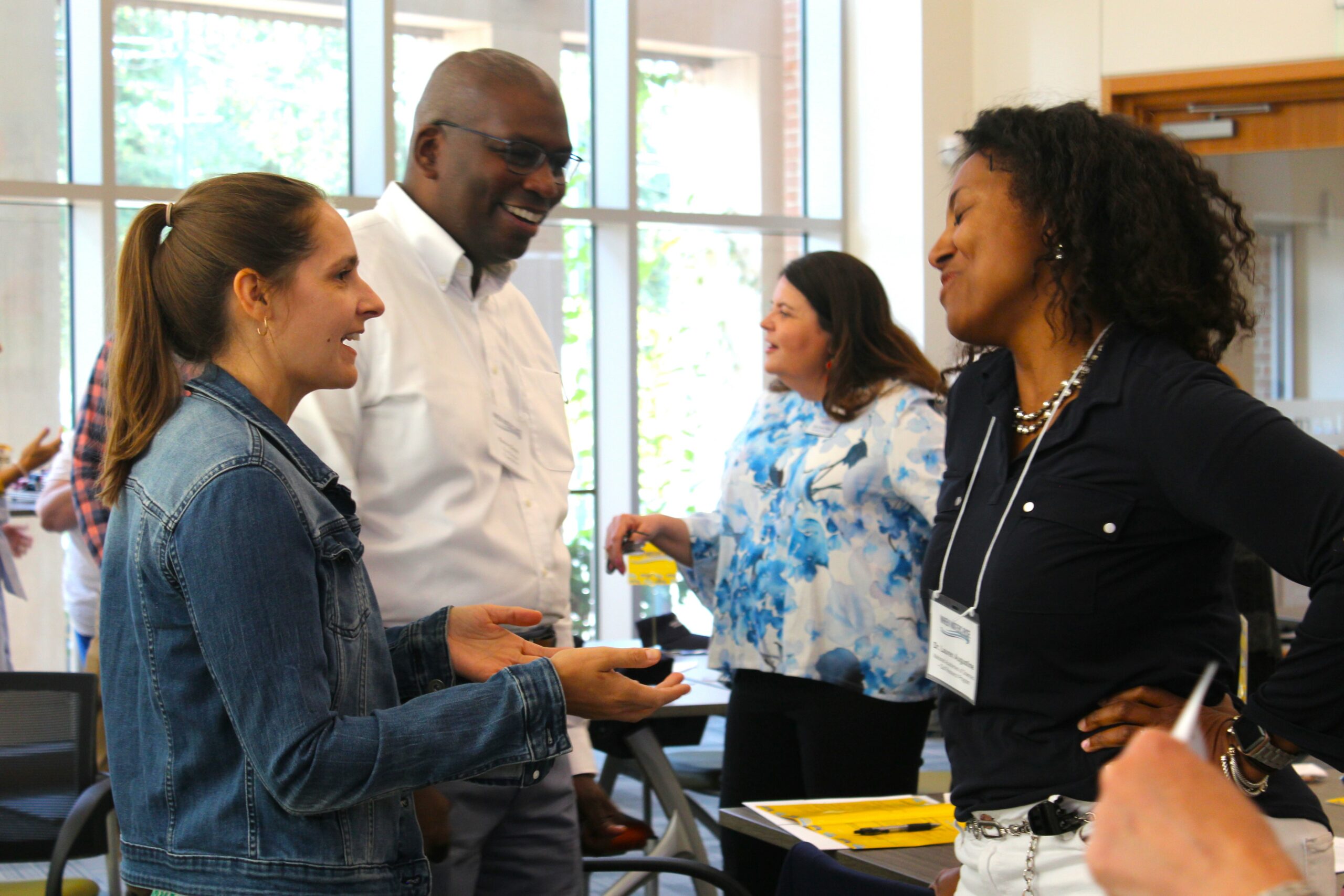
We were thrilled to have Dr. Lauren Augustine, Executive Director of the Gulf Research Program at the National Academies, as our keynote speaker. Dr. Augustine gave a presentation entitled, “The Tip of the Spear: Risk and Resilience in the Gulf of Mexico”. Her presentation allowed attendees to gain a better understanding of gulf resilience capitals, risks to gulf capitals, and how to build resilience in gulf communities and lifelines. Augustine reflected on how addressing resilience issues in the Gulf will help solve the same issues nationally.
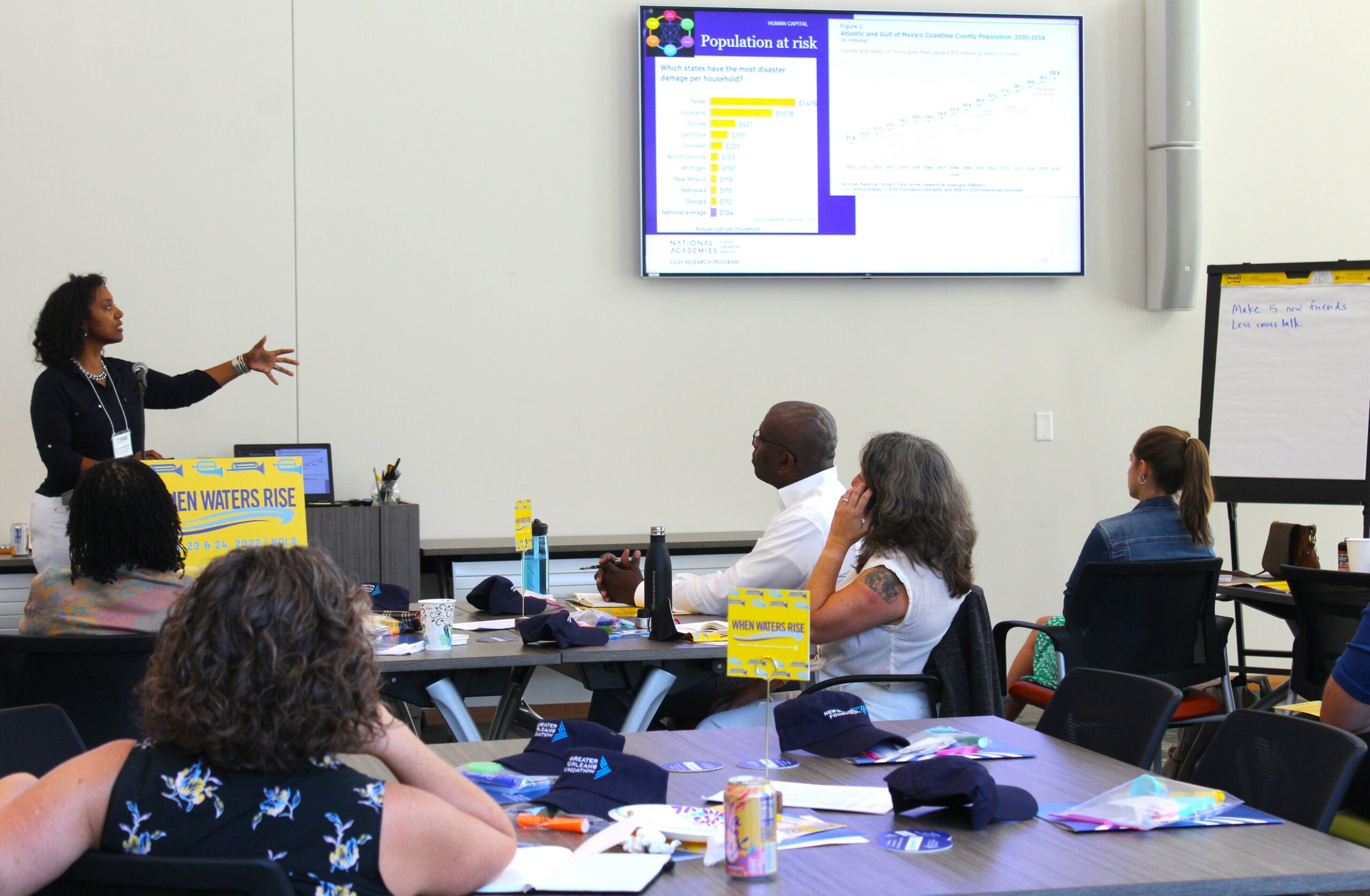
Following Dr. Augustine’s presentation, attendees brainstormed how a formal When Waters Rise network could take shape by sharing best practices within their own organizations, discussing ways to scale up regionally and/or nationally, and considering limitations.
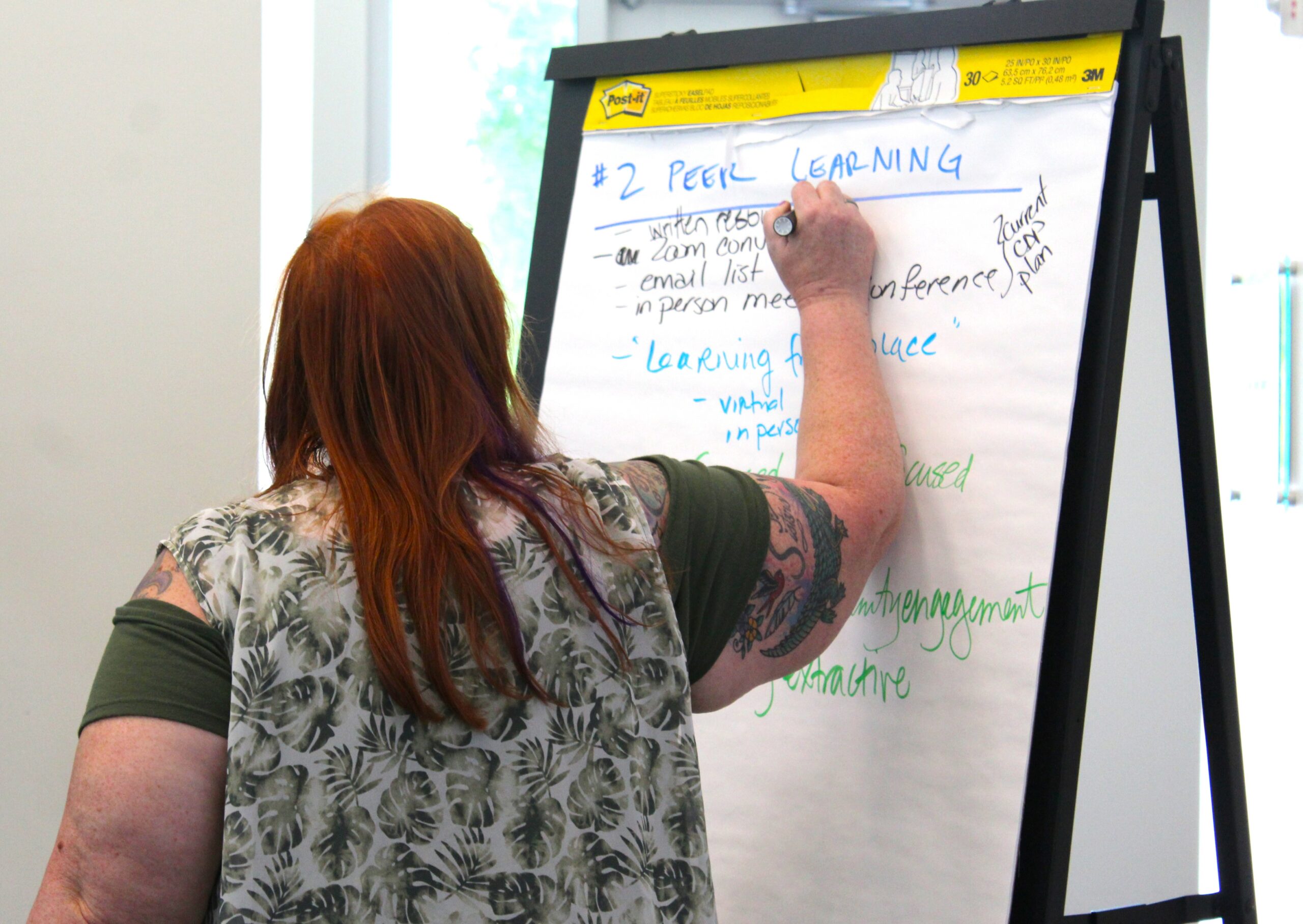
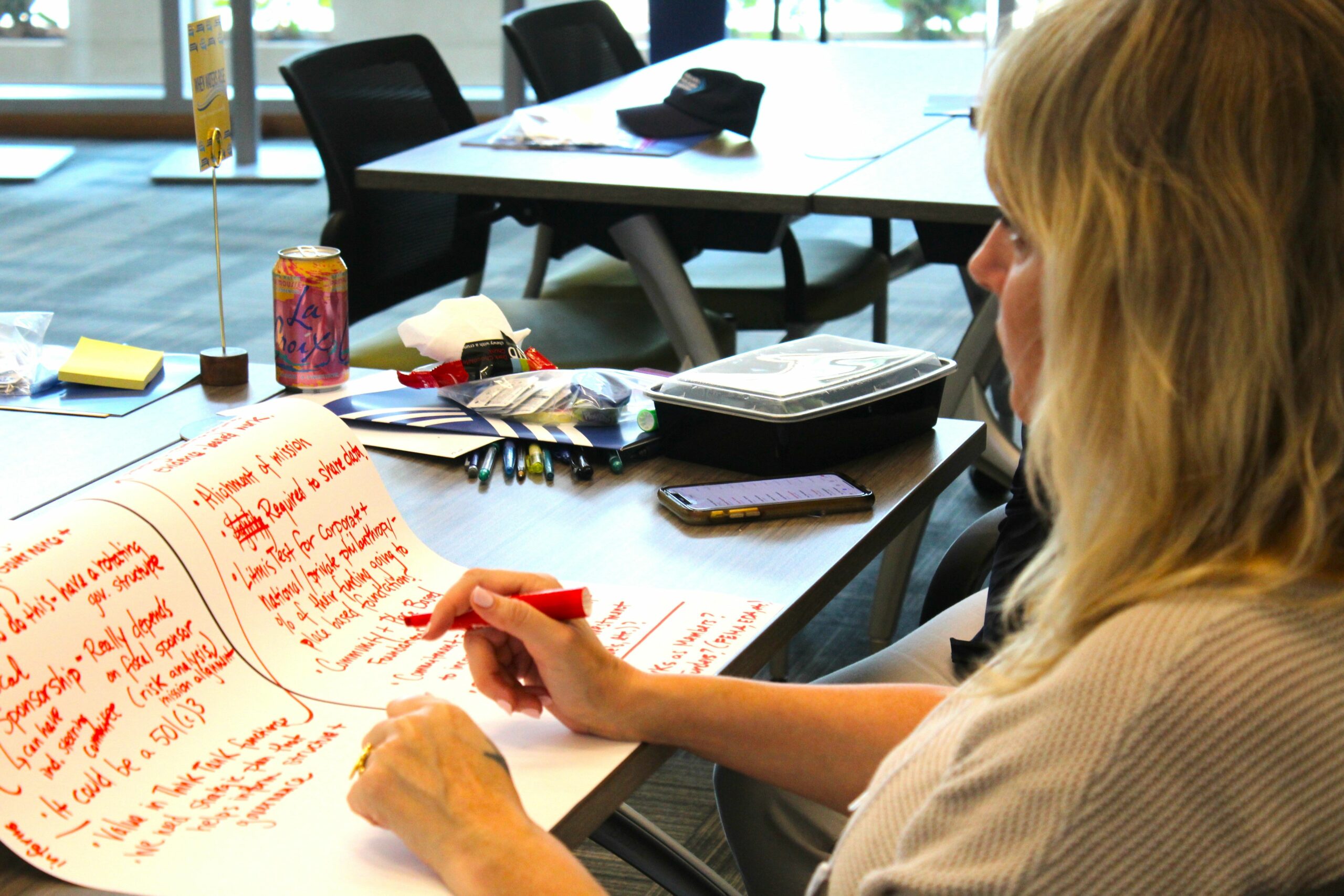
A major part of the in-person convening was sharing the stage with Foundation disaster nonprofit grantees who are leading on-the-ground work in our region. Convening attendees visited the Bayou Bienvenue Outlook, a 12.1 mile long stretch of “ghost swamp” – a freshwater swamp-turned-saltwater marsh. Attendees were able to see up-close the failure of a central wetlands system and think critically on how this natural area could be restored.
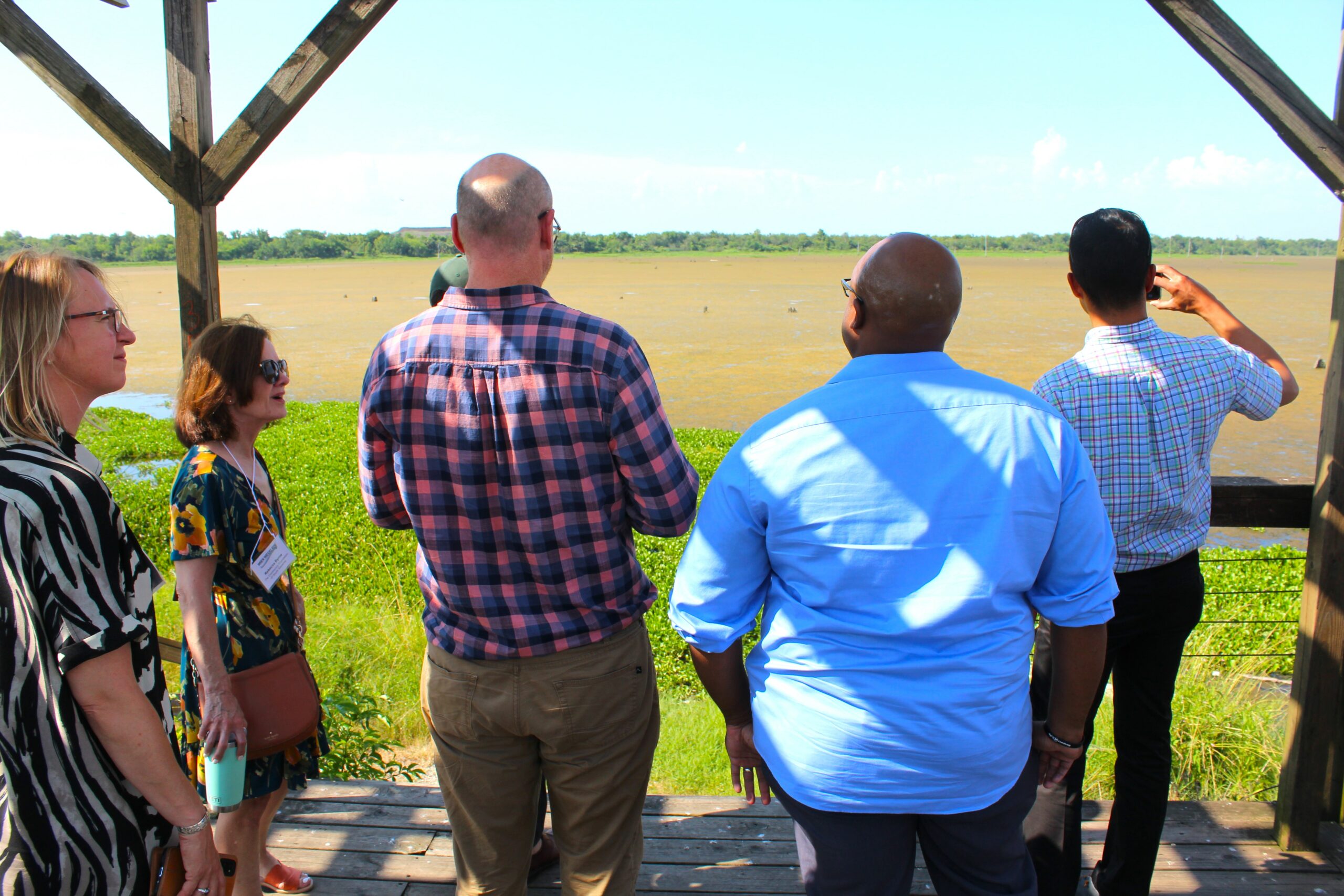
Next, participants visited Sankofa Wetland Park and Nature Trail, where Rashida Ferdinand, Executive Director of Sankofa Community Development Corporation, explained how the organization’s recovery projects improve hurricane and flooding protections in the Lower Ninth Ward of New Orleans. The Sankofa Wetland Park was developed in 2017 in partnership with the Sewerage and Water Board and the City of New Orleans. Sankofa worked with a team of wetland ecologists and landscape architects to transform this 40-acre area into a space for environmental education, relaxation, and recreation for all to enjoy.
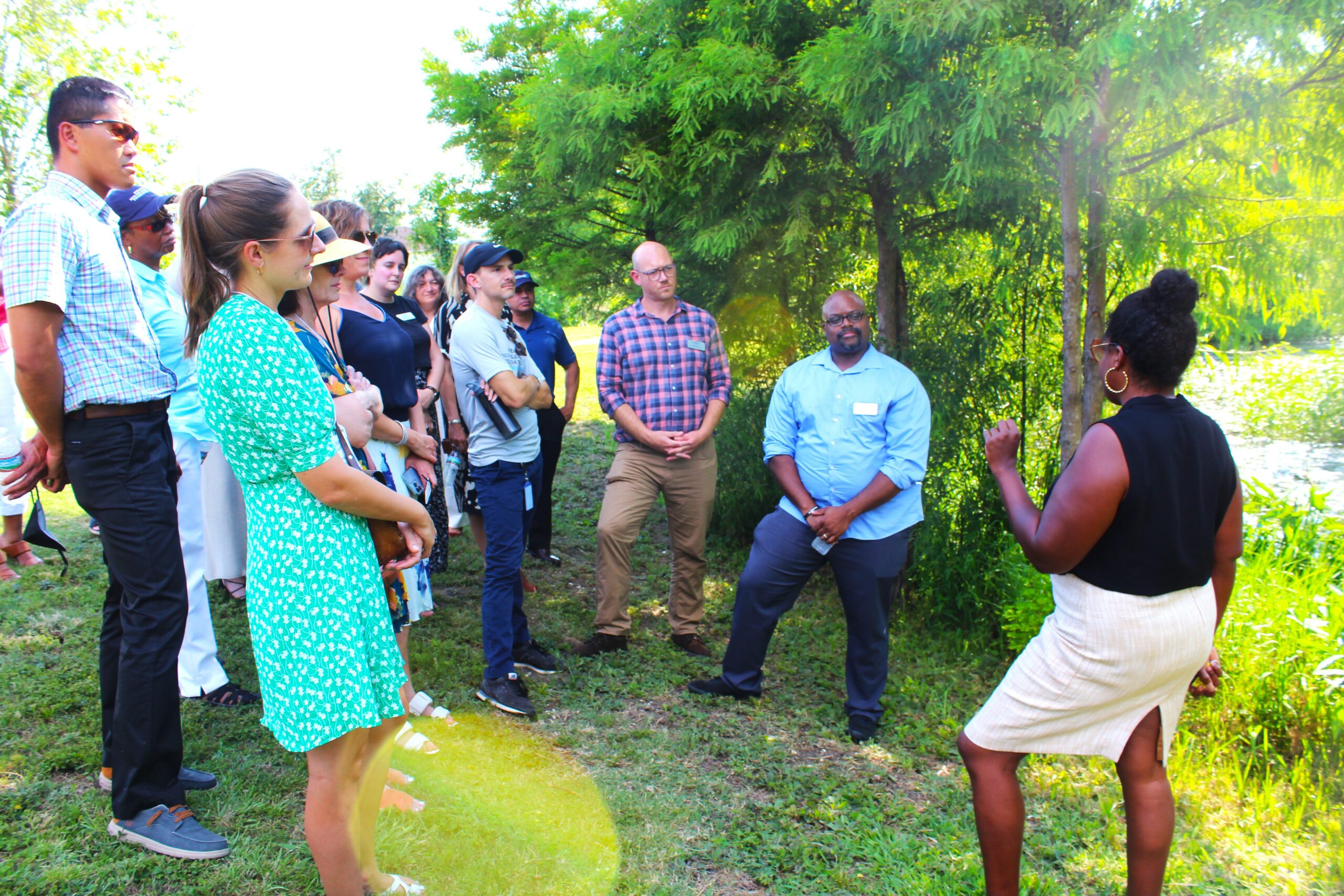
The next stop was The Munch Factory, where attendees heard from Khai Nguyen and Tap Bui, Co-Directors of MQVN Community Development Consortium, a nonprofit that works to improve the quality of life of residents in vulnerable communities in Southern Louisiana. They presented on the nonprofit’s food access and environmental initiatives as well as the organization’s strategic direction and initiatives related to equitable community development, disaster management, advocacy and policy, and community services/programming.
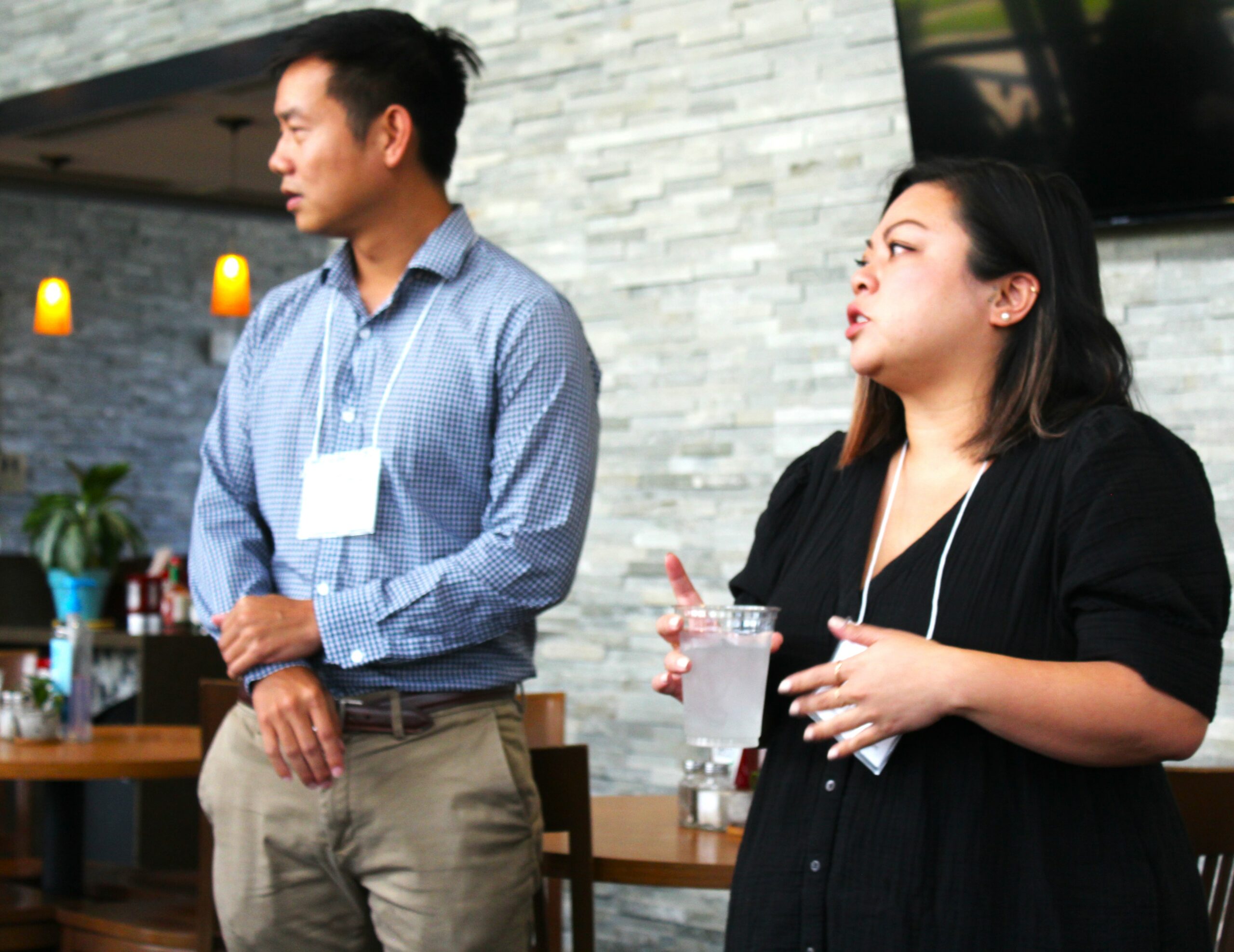
The second day of the convening was spent in the River Parishes, where we visited Matthew 25:35 Food Pantry and New Wine Christian Fellowship, two organizations deeply involved in post-disaster relief. Laura Tuggle, Executive Director of Southeast Louisiana Legal Services, an organization that provides legal aid to individuals and communities following a disaster, spoke on the legal implications that arise in the short, medium, and long-term following a disaster.
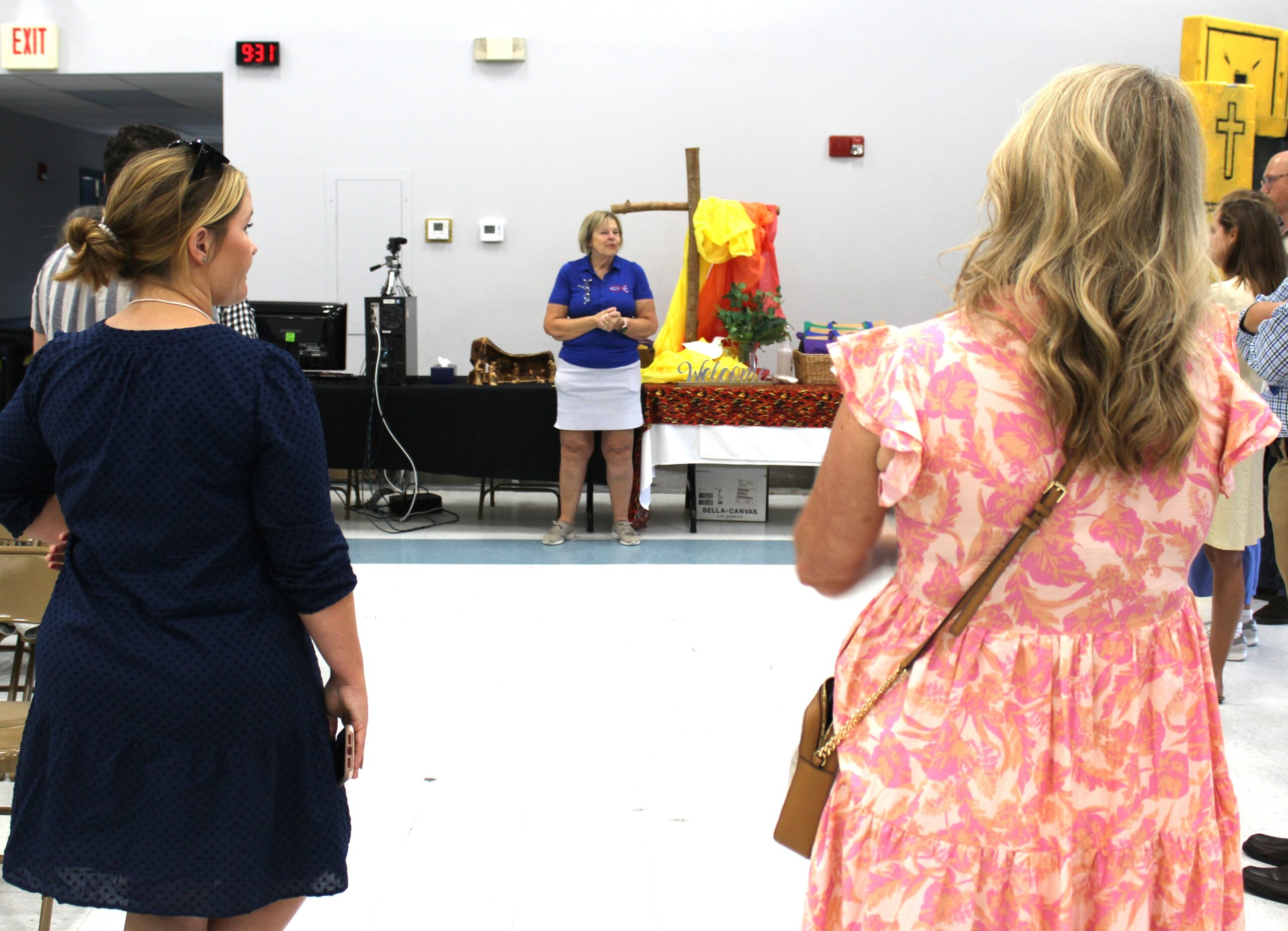
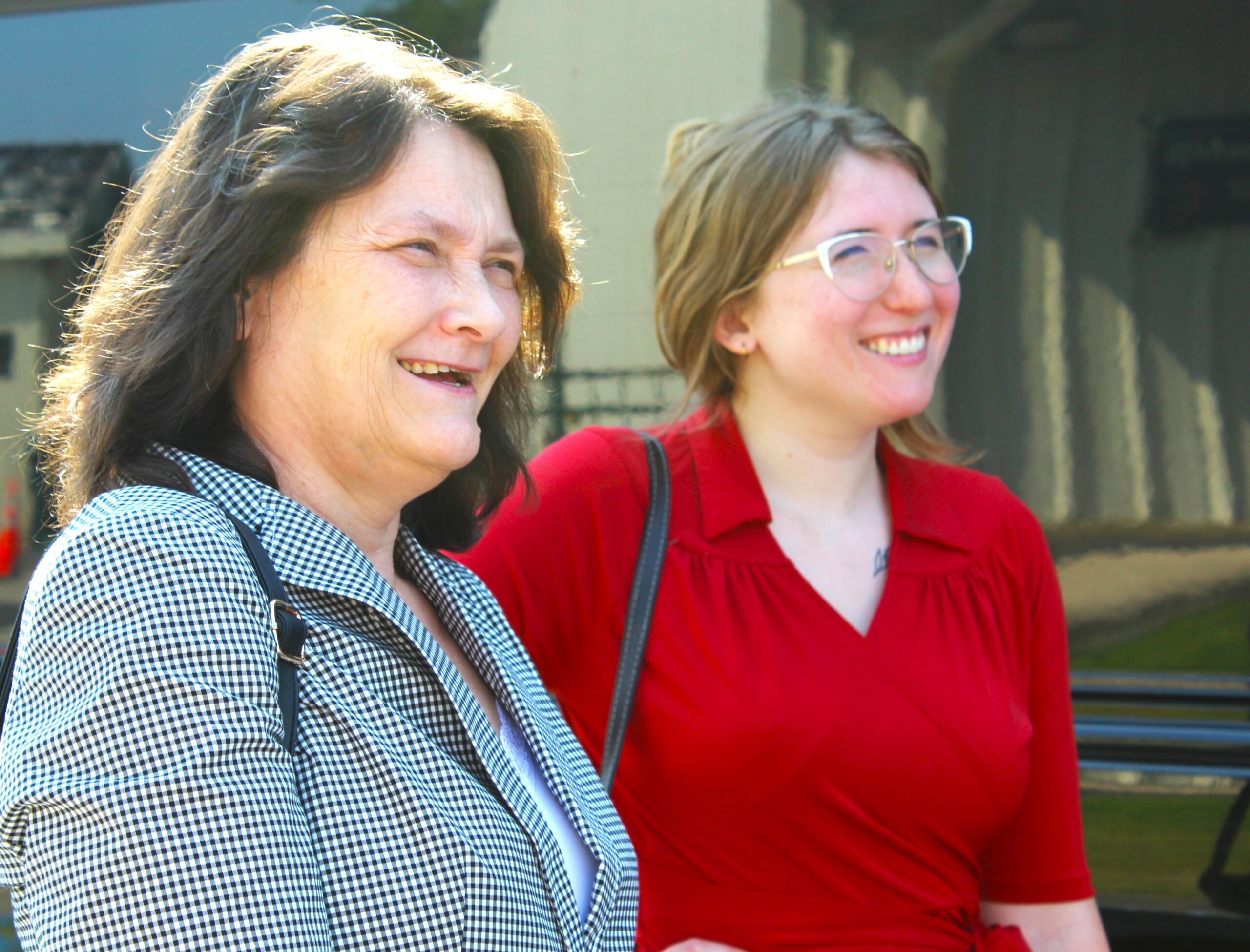
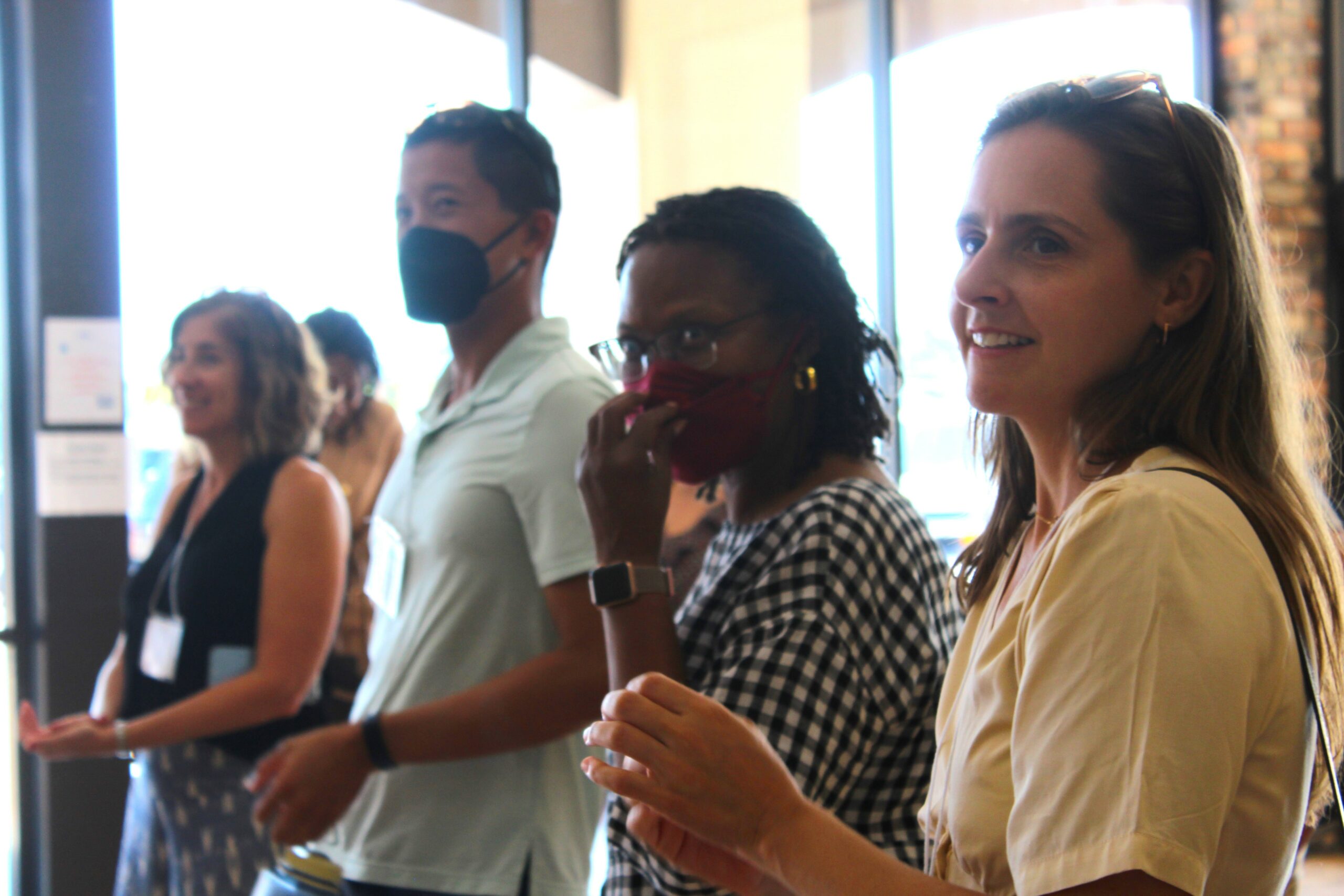
In the final afternoon of the convening, Kellie Chavez Greene, alongside Steve Mumford, Assistant Professor of Political Science at the University of New Orleans, Michelle Bidwell, Owner & CEO of Granted Advisors, and Isabel Barrios, Senior Program Officer at the Greater New Orleans Foundation, led a panel on the Foundation’s Hurricane Ida Evaluation.
The Hurricane Ida Evaluation report provided an in-depth grasp of the innovative methods used in the Foundation’s rapid response following the storm. The Foundation also announced the launch of a webpage that includes the full evaluation.
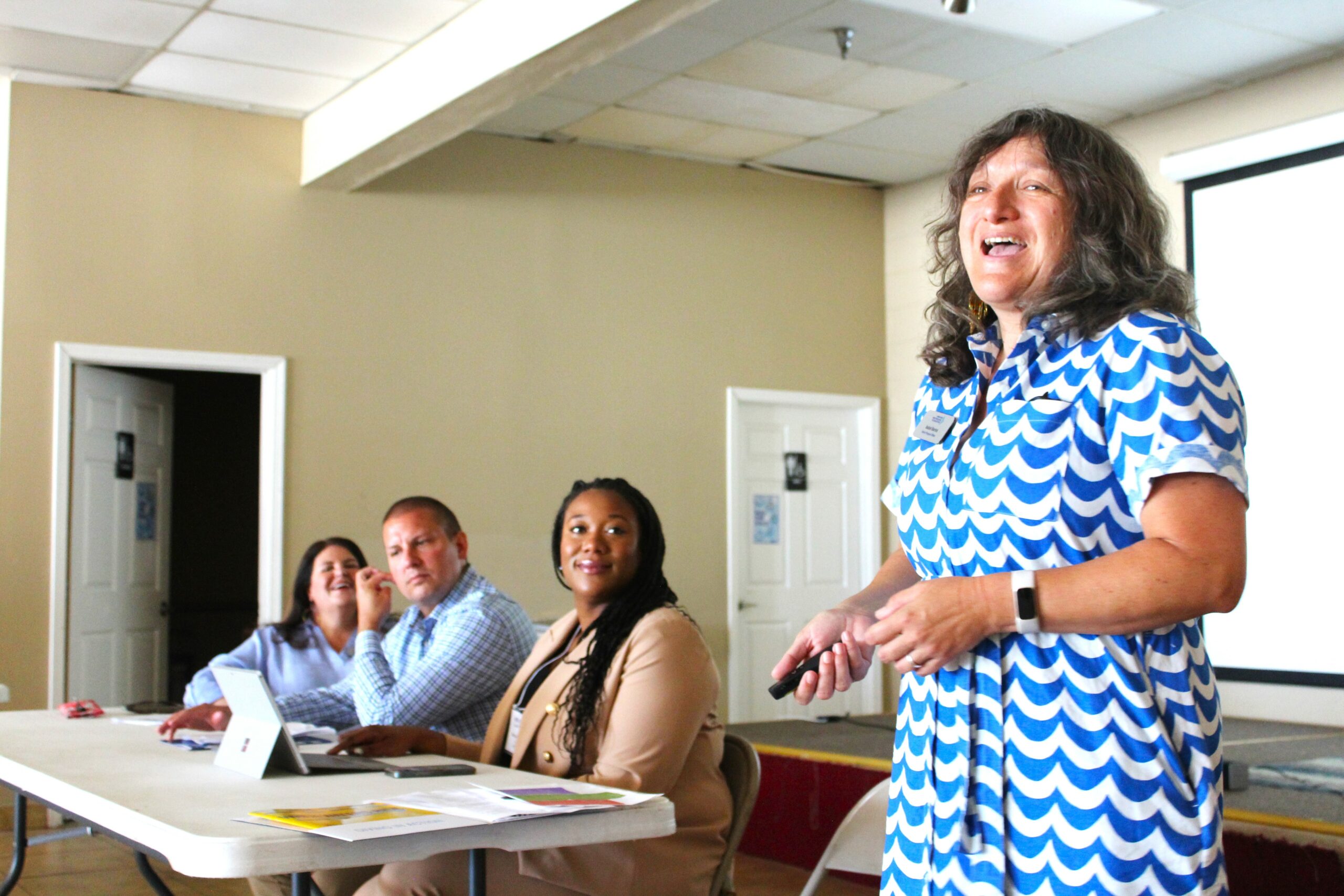
The two-day convening culminated with peer-sharing on leading innovative practices for equitable disaster philanthropy.
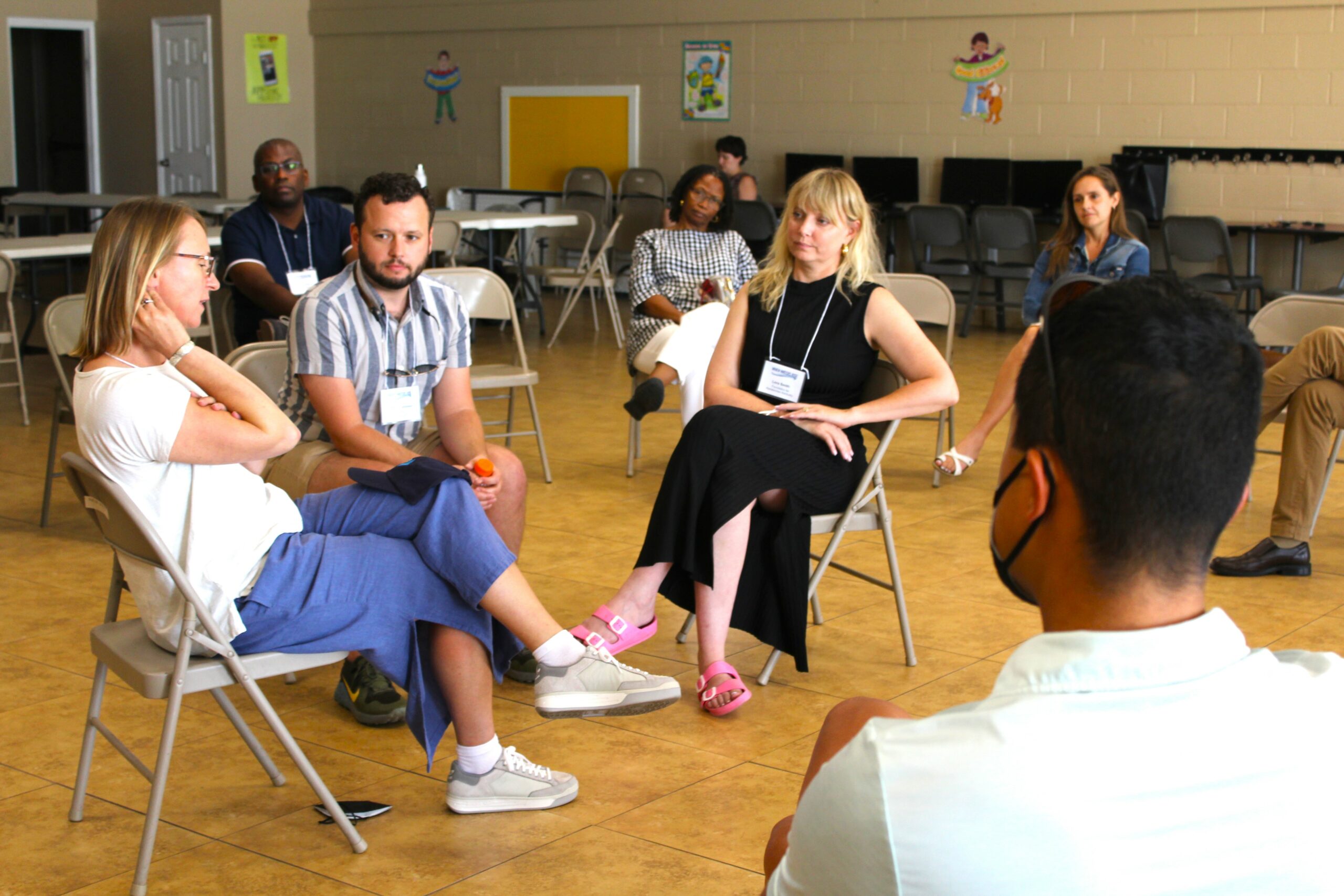
The Greater New Orleans Foundation is grateful for the numerous stakeholders who made the convening possible: The Ford Foundation, for their support of the feasibility study; the When Waters Rise Design Team, the group of community foundation, philanthropic network, and disaster response experts that designed the feasibility study, informed the convening agenda, and helped provide vision to the network’s future; the Greater New Orleans Foundation staff for producing the event; nonprofit grantee partners who took the time out of their busy schedules to detail their post Hurricane Ida experiences; and the incredible philanthropy partners from across the country who participated in the two-day convening.
See the rest of the photos of the convening here.